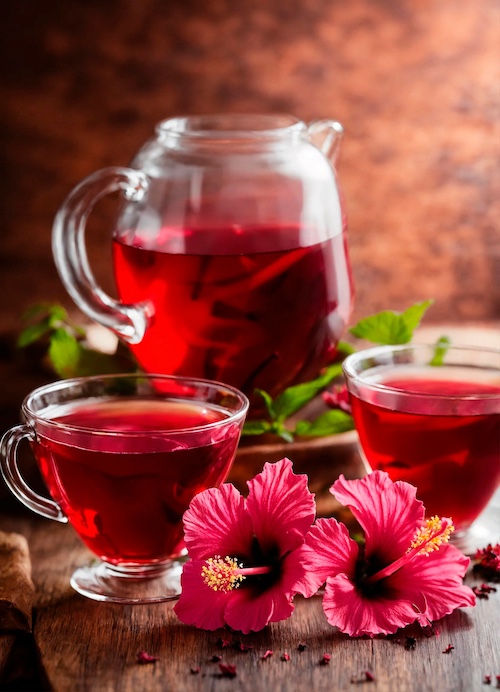DIY Remedies for Grief and Heartache
If you’re familiar with this blog, you may note that we often focus on how herbs can help to heal physical ailments. Grief and heartache are emotional states, but make no mistake, they take a toll on the body. The grief and heartache are stressors, which wreck the nervous system. Both can be addressed with the use of supportive herbs.
The best remedies for grief and heartache apply 3 characteristics: 1.) adaptogenic herbs to soothe the nervous system 2.) nervine herbs to repair nerve tissue and 3.) ease of use, so that you actually take the remedies as needed.
The recommendations below address all 3 characteristics, making it easier for you to receive the self-care that you deserve during tough times.

Rose + Milky Oat Tincture (at least 4 weeks prep)
Tinctures gently draw healthful components out of herbs. They are potent, making it easy to take medicinal doses of herbs without drinking gallons of tea!
Rose is an adaptogen that’s proven to release dopamine, a “happy” chemical. Dopamine decreases stress hormones in the body. The flower calms the nervous system and eases tense muscles. Its anti-inflammatory properties reduce pain and ease digestive upset due to stress.
Milky oats are a powerful adaptogen and nervine herb. They physically heal the nervous system, and restore the immune system and energy reserves after long bouts of illness or other stress; milky oats are known to reduce the symptoms of prolonged anxiety and stress.
This tincture can be made with 70+ proof alcohol, honey, or vegetable glycerine. Fill a glass jar 30% with milky oats and top with 50% rose buds or rose petals. Fill the remainder of the jar with your choice of alcohol, honey or vegetable glycerine. Leave 1/4″ – 1/2″ of air space at the top. Seal the glass jar with a lid and leave it in a cool, dark place for at least 4 weeks. The longer, the better! For the best results, occasionally shake the jar as it steeps.
After the desired timespan, drain the tincture from the herbs. Place the tincture in an airtight glass bottle, jar or vial. Store your tincture in a cool, dark place. It will be good for several years. (The longest shelf life is with an alcohol base).
Consume 4 ml – 6ml per day as desired and tolerated.
Tulsi + Hibiscus Tea (at least 5 min prep)
This naturally sweet and flavorful tea is packed with beneficial properties.
To me, Tulsi is the mother of all herbs. It is an adaptogenic herb that balances the adrenal glands and removes excess cortisol from the bloodstream. Also known as “holy basil,” tulsi helps to elevate the mood. It also bolsters the immune system, which is weakened by stress hormones in the body. (It does so much more, but those properties are most relevant to heart healing and grief.)
Hibiscus helps to moderate blood pressure, which is often elevated during times of high stress. It contains antioxidants, which protect our bodies against free radicals that destroy our cells. Free radicals are major culprits behind diseases such as cancer, diabetes and heart disease which are exacerbated by stress. Hibiscus also lowers inflammation, a common stress-response in the body.
Play with the ratios of the blend based on your flavor preferences. I recommend starting with half tulsi and half hibiscus. Steep 2 tsp of herb in 8oz of simmered water. Steep for 5 minutes. Strain the herbs and enjoy the tea hot or iced.

Along with herbal remedies, remember to move your body in ways that feel good to you. Movement releases hormones that can elevate your mood and minimize the physical sensations of grief, such as tightness in the jaw, shoulders, chest, abdomen and hips. Dancing, yoga asana, walking / hiking, and skating are all excellent options.
A trauma-conscious yoga teacher assists you through strategic movement practices. The customized practice addresses how grief feels in your body, as well as effective ways of releasing those sensations. You can also learn breathing exercises and visualizations to help you navigate life’s challenges. Learn more about trauma-conscious private yoga classes.

